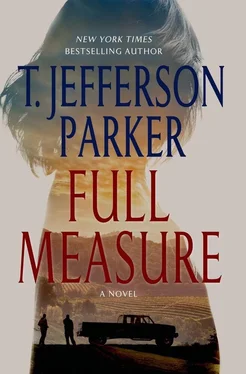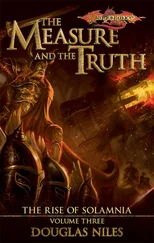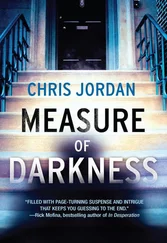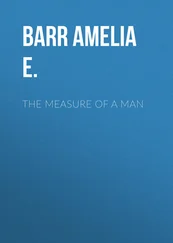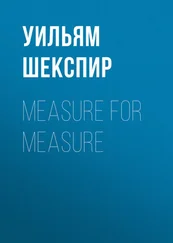“I had no idea you were that fucking slow,” said Trevor. “Did you panic?”
“He was faster than me.”
“Shit, Ted. You had a club!”
They were down Mission and almost to Fallbrook Street when Ted felt the hot sharp pain in his side. He braced his feet on the floor and pushed himself back and lifted the hoodie and T-shirt. On his lower ribs were two swollen bumps about the size of cherry tomatoes, each with a neat slice in the top. Blood trickled steadily from both.
“Woah, Trevor. She stabbed me.”
“I saw the knife. The hospital’s close, Ted. You’ll be okay.”
Trevor sped up Elder then gunned the truck up the hospital entrance and pulled alongside emergency. “You’re on your own,” said Trevor. “No use dragging me into it. Whatever you say, don’t tell them you were at Pride tonight. I’ll leave this truck in the Wells Fargo lot, keys on the left rear tire. Think of your wolf pack, not of yourself. Gun and holster off, Ted. I’ll lock them in the toolbox behind us.”
The knife wounds burned hotter and Ted felt bad in his heart, too. “Okay. I’ll go alone.”
At four that morning Patrick wheeled Ted from the emergency room to his truck. Fallbrook slept in dark and fog. Patrick could smell the ocean and the burned land around them and the combination was rare and jarring.
“It hurts when the chair hits the sidewalk cracks,” said Ted.
“We’ll be home soon.”
“I don’t want to go home.”
Ted’s wounds had been treated and he’d made his statement to the sheriffs. His luck had been good: no veins or arteries cut; no organ or GI damage, although the knife had come close to doing both; nothing broken off inside; the antibiotics would help him fight off infection and he was given pills for pain. No strenuous physical activity for a week.
Ted told the deputies that he had parked at the bank last evening to go to the Irish pub across the street — all set for the roast beef on rye — when two young gangster types had jumped him and he’d fought them off. One of them pulled a switchblade and poked him twice and they’d taken cash from his wallet and left it on the ground. He’d walked up the hill to the hospital himself. No, he did not know them. But he could certainly identify them. He seemed disinterested and he rarely looked at the deputies. Patrick listened to him doubtfully but said nothing.
He helped his brother up into the front seat. Ted grunted dreamily. Pat rolled the wheelchair back to the lobby and climbed into the truck a moment later.
“Can we go fishing, Pat?”
“No.”
“Can we just drive out and look at the ocean? I’m hungry, too.”
“Let’s eat in Oceanside then we can go down to the water if you want.”
They ate at a twenty-four-hour place on Coast Highway, then walked, slowly, to a bluff overlooking the beach and pier. They sat on a cold concrete bench. The waves slapped the shore below, hidden in a gauze of fog as the sun rose behind them imperceptibly. Ted asked for a war story and Patrick told him about patrolling at night, racing against sunrise, single column and single file, with the point man working a Minehound and the number two man backing him up because the sweeper couldn’t quickly return fire. And about how when they took contact everyone froze right in place, single file, lined up like ducks but not wanting to step off the path and get blown up. Which is what the skinnies wanted, because single-file Marines made easy targets. And he told Ted about the various IEDs the Talibs made — the pressure plates, the crush boxes, the saw blade IEDs. Ted listened without interruption but telling these things was a burden to Patrick and his heart was far from in it. He’d rather forget than provide entertainment.
“What the fuck really happened last night, Ted?”
“It was just like I said.”
“Two guys with a knife outside a bank with security cameras all over? At dinnertime? With the restaurants open? Two blocks from the sheriffs’ station?”
“Yup.”
“Bullshit, brother.” Patrick had taken a toothpick from the counter of the café. He picked at something, then let the pick dangle from his lips. Ted had taken one, too, and Patrick saw him do likewise.
“I want to confess,” said Ted.
Patrick just shook his head.
“I’ve been hanging around with Cade Magnus and those people at Pride Auto Repair. I’m a Rogue Wolf, pretty sure.”
“Why? Why do that, Ted?”
“We believe the same things.”
“Christ.”
“Christ was white, according to the Wolves. And to history. None of this olive-skinned stuff you hear.”
“Did the Wolves put you up to something last night?”
“Oh, no, Pat. This confession isn’t about last night.”
“You’re a terrible liar, Ted.” Patrick glanced at his brother, then looked out to the Pacific coalescing in the early light.
“It doesn’t take much to fool most people,” said Ted. Patrick studied his brother in profile. “Pat, that guy who robbed me a few days ago that I told you about? I took him to the next level.”
“What does that mean?”
“It’s a technical Rogue Wolf term. It means I beat up Edgar. But Jessica stabbed me. So I threw her in the pond.”
Patrick leaned forward, elbows on knees, and looked down at the damp, gum-stained concrete. He knew how his father must feel. “Was Cade with you?”
“I told you he didn’t have anything to do with it.”
“But he was there, wasn’t he?”
“I swear on our parents’ grave. No. But Trevor was.”
“Trevor?”
“One of Cade’s Rogue Wolves.”
“You beat up the robber? Or Trevor did? Your knuckles aren’t even skinned.”
Ted sighed and put his hands into his hoodie pockets without looking at them. “I used gloves. Maybe you could just say something like, good job. Or, way to go, Ted. There are more heroes in this world than just you.”
“I am not a hero and I don’t want to be.”
“It’s how you were born, Pat. Me, I have to work harder.”
“So he robbed you with a gun. Now you say you’ve beaten him up and thrown his girl into a pond. Are you satisfied? Does this make it even now?”
“Yeah. I really got him good.”
“So you’re done. You’re not going to do this again.”
“Oh, absolutely not. We’re even-steven. I just remembered when I was in fourth grade and I got in a fight with Ronnie Stevens and we became friends later.”
“Is that what you want to happen?”
“This went a little too far for that.”
Patrick could see the whitewater below, washing ghostlike up the beach. The caissons of the pier were individuated, and lights came on in the restaurant far down at the end. A surfer stood knee-deep with his board under his arm, as if he’d been trapped there all night awaiting release by sunlight, then fell forward on his board into the water. Two more paddled out through the shorebreak. “I don’t want you down at Pride Auto Repair anymore, Ted. Do you understand?”
“Naturally.”
“I’m ordering you away from there.”
“Okay. I’ll stay away.”
“You have to control yourself, Ted. If you won’t control yourself, who will?”
“Not government, that’s for sure.”
“Who’s talking about government? ”
Ted shook his head back and forth quickly, then rolled the hood over his head and snugged it tight. “They get in! They get in!”
“What are you talking about — your ideas again?”
“Yes! I got this new idea in the hospital a few hours ago — how if you make yourself believe a lie to make the world look the way you want it to look, you’ve started to go insane. And after you believe that first lie, every other lie gets easier. And in you go, deeper and deeper. My first lie was that I would become a meaningful man. That I had something that was all mine and really important I was meant to do. That thing I was telling you about on the way home from the airport. I was eleven when I told myself the meaningful man lie. Can I make another confession? You think I won’t control myself. But sometimes I get really, really angry. You don’t know how angry. I want to do terrible things. And I see how they can be done. Exactly how. And usually I talk myself out of them. Usually. I’m afraid someday I’m not going to be able to. And then I’ll mix up my anger with the really important thing I was meant to do. And then, wow, what a random mess that’s gonna to be.”
Читать дальше
